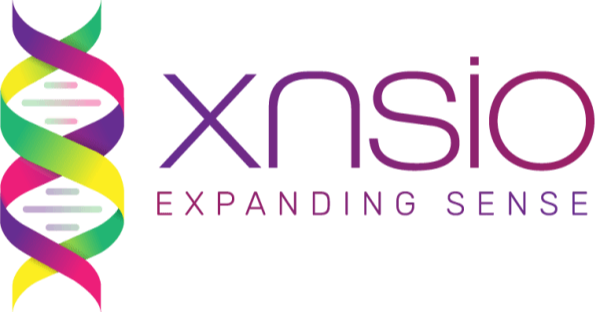Understand the responsibilities of product manager along with process and practices adapted from Agile and Lean Start-up methods.
Key takeaways and practical knowledge
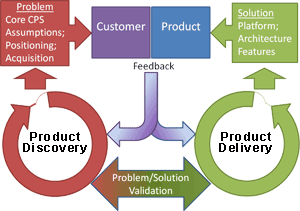
At the end of this training the team will be able to:
Workshop Modules
Day 1 – Product Discovery
- Product management, product engineering, and project management
- The product team
- The product manager’s process
- Collaborative workshops and facilitation
- Problem analysis and solution definition
- Planning product discovery
- Project chartering
- Synthesizing business strategy as measurable product goals
- The revenue model
- Introduction to Pricing Strategies
- Market Sizing
- Positioning
- Some case studies
- Creating lightweight pragmatic user personas
- User research
- User collaboration
- User stories
- User story mapping
- User scenarios
- Minimal Marketable Feature, and Minimal Viable Product (MVP)
- Incremental release planning
- Creating a release roadmap
- Defining meaningful Release goals
- Release readiness assessment
- Sketch board and design studio for collaborative UI envisioning
- User experience story boards
- UI framework & patterns
- Iterative and incremental strategies
- Opening, mid, and end‐game chess strategies
- Story splitting and thinning
- Sophistication levers
- Various Prioritization techniques
- New Age Estimations
- Different models of Estimations.
- When to use what.
The product manager’s role
Product Discovery
Identifying business value
Understanding users
Creating the product backlog
Planning valuable product releases
Envisioning the user experience
Guiding products to success in iterations
From Backlog to Priority-log
Technical Spikes & Steel-threads
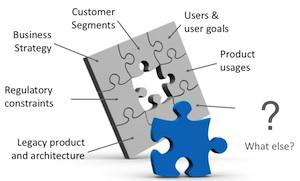
Day 2 – Product Delivery
- Product team planning
- Defining meaningful Sprint Goals
- Defining Doneness Criteria
- User story workshops
- UI design & user testing
- Acceptance criteria workshops
- Sprint planning
- Working with the team
- User story acceptance
- Sustainable pace
- Product review
- Sprint retrospectives
- Acceptance Test Driven Development
- Continuous Deployment
- Hallway Testing & A/B Testing
- Fake Features
- Tips from “Most Memorable Product Launches”
- Product Release Retrospective
- Introduction to Essential Analytics
- Effective techniques to validate product hypothesis
- Adjusting the marketing mix (4P's) of product, pricing, promotion, and place/distribution channels
The sprint cycle
Effective Engineering teams practices
Pragmatic Progress Tracking techniques
Product Launch Strategies
Post Launch Activities
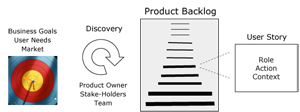
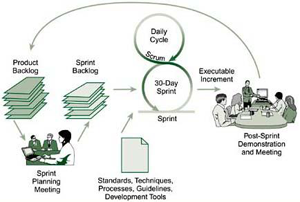
Benefits
All of our courses offer following benefits:
- Unlimited access to course materials, sample projects and code examples with relevant tools
- Low participant-to-instructor ratio
- Heavy focus on hands-on learning experience
- Live demos and real-world examples
- Interactive activities/simulations to help understand the essence and concepts
- Open discussion and dynamic format
- Customizable
Post training, if your team needs help, we’ll be happy to assist your team.
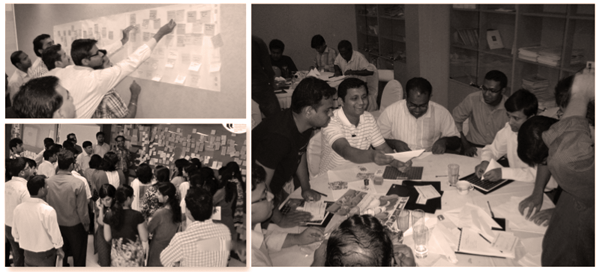
Instruction Method, Audience & Prerequisites
Method of Instruction
Course Level
Course Prerequisites
Transfer %
Target Audience
- People playing the product manager/owner role: Product Managers, Project Manager and Business Leaders.
- People supporting the product manager/owner: Business analysts, UX practitioners and others who support product development by collaborating with users, business stakeholders, and subject matter experts to make decisions about what the product should be.
Want to enroll or customize a training for your team?
Contact us to get started.
Training Details
Pricing
- Trainer Fee: Rs. 1,70,000 (~2000 USD) per day
- GST: Additional 18% GST applicable on all trainings delivered in India
- Expenses: Travel, accommodation and other expenses to be paid by the company
- No. of Participants: All our training have a cap of max 20 participants per training
Contact Details
If you are interested in any of the trainings listed here or interested in customizing these trainings to your needs, please contact us.
Timings
9:00 AM – 6:00PM
These trainings can also be conducted on a weekend if that works better for your team.
General Requirements
- HDMI projector (1024x768 minimum) & Projector screen
- 1 White board & Dry erase markers.
- Cluster seating with 5-6 people on each table.
- 1 Flip chart with the stand and marker pens for each table.
- Notepad and Pen for each participant.
- Ample room for students in terms of room size and set up.
- For Dev trainings: at least one powerful workstation between two programmers.
- HDMI projector (1024x768 minimum) & Projector screen
- 1 White board & Dry erase markers.
- Cluster seating with 5-6 people on each table.
- 1 Flip chart with the stand and marker pens for each table.
- Notepad and Pen for each participant.
- Ample room for students in terms of room size and set up.
- For Dev trainings: at least one powerful workstation between two programmers
General Requirements
To ensure a successful workshop, we require the following facilities:
- HDMI projector (1024×768 minimum) & Projector screen
- 1 White board & Dry erase markers
- Cluster seating with 5-6 people on each table
- 1 Flip chart with the stand and marker pens for each table
- Notepad and Pen for each participant
- Ample room for students in terms of room size and set up
- For Dev trainings: at least one powerful workstation between two programmers
Learning Outcome
At the end of this training the team will be able to:
- Understand the responsibilities of product manager along with process and practices adapted from Agile and Lean Start-up methods
- Learn new techniques for creating and prioritizing the product backlog and envisioning the product, and gain experience working with those techniques
- Evolve their product management techniques by leveraging a product team and collaboration with the whole team, users, and stakeholders

Course Outline
Day 1 – Product Discovery
The product manager’s role
- Product management, product engineering, and project management
- The product team
- The product manager’s process
Product Discovery
- Collaborative workshops and facilitation
- Problem analysis and solution definition
- Planning product discovery
- Project chartering
Identifying business value
- Synthesizing business strategy as measurable product goals
- The revenue model
- Introduction to Pricing Strategies
- Market Sizing
- Positioning
- Some case studies
Understanding users
- Creating lightweight pragmatic user personas
- User research
- User collaboration
Creating the product backlog
- User stories
- User story mapping
- User scenarios
Planning valuable product releases
- Minimal Marketable Feature, and Minimal Viable Product (MVP)
- Incremental release planning
- Creating a release roadmap
- Defining meaningful Release goals
- Release readiness assessment
Envisioning the user experience
- Sketch board and design studio for collaborative UI envisioning
- User experience story boards
- UI framework & patterns
Guiding products to success in iterations
- Iterative and incremental strategies
- Opening, mid, and end‐game chess strategies
- Story splitting and thinning
- Sophistication levers
From Backlog to Priority-log
- Various Prioritization techniques
- New Age Estimations
- Different models of Estimations.
- When to use what.
Technical Spikes & Steel-threads


Day 2 – Product Delivery
The sprint cycle
- Product team planning
- Defining meaningful Sprint Goals
- Defining Doneness Criteria
- User story workshops
- UI design & user testing
- Acceptance criteria workshops
- Sprint planning
- Working with the team
- User story acceptance
- Sustainable pace
- Product review
- Sprint retrospectives
Effective Engineering teams practices:
- Acceptance Test Driven Development
- Continuous Deployment
- Hallway Testing & A/B Testing
- Fake Features
Pragmatic Progress Tracking techniques
Product Launch Strategies
- Tips from “Most Memorable Product Launches”
Post Launch Activities
- Product Release Retrospective
- Introduction to Essential Analytics
- Effective techniques to validate product hypothesis
- Adjusting the marketing mix (4P’s) of product, pricing, promotion, and place/distribution channels


Training Details
Method of Instruction
We use a Socratic method for training that involves a 100% hands-on workshop with interactive dialogues, case studies, debates, demos, and instructional games.
Transfer %
Knowledge: 50%, Skill-Building: 50%
Target Audience
- People playing the product manager/owner role: Product Managers, Project Manager and Business Leaders.
- People supporting the product manager/owner: Business analysts, UX practitioners and others who support product development by collaborating with users, business stakeholders, and subject matter experts to make decisions about what the product should be.

Course Level
Advanced
Course Prerequisites
Past experience managing projects and products is strongly recommended.
General Requirements
- HDMI projector (1024×768 minimum) & Projector screen
- 1 White board & Dry erase markers
- Cluster seating with 5-6 people on each table
- 1 Flip chart with the stand and marker pens for each table
- Notepad and Pen for each participant
- Ample room for students in terms of room size and set up
- For Dev trainings: at least one powerful workstation between two programmers

